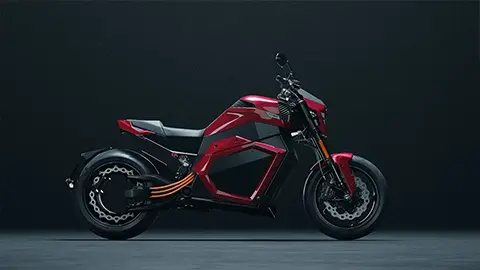Rising Material Prices for EV Batteries Cause a Reversal
If you’ve been watching the development of the plug-in hybrid and electric car market over the past few years, one of the most amazing things has been watching how much more accessible electric and electrified driving has become. In particular, electric cars, once a very rare sight on our roads, and often priced out of reach of most normal people, are now truly mainstream, with viable options at most price points and in a variety of vehicle classes.
Demand for electric vehicles has, of course, increased over the years – some drivers have been looking for ways to isolate themselves from rising fuel prices, while others are seeking to reduce their environmental footprint. But another key driver of the increased availability and accessibility of electric cars has been a gradual reduction in the cost of batteries. The most expensive component of every electric vehicle, the battery is a key driver of overall cost.
After more than a decade of declines, however, rising raw material prices, rising prices for battery components, as well as soaring inflation in certain parts of the world, meant that battery pack prices increased for the first time since 2010. A study by BloombergNEF, which has been tracking the battery market since that year, showed a 7 percent rise in battery pack prices in 2022. This year, the cost of battery pack averaged $151/kWh, a 7 percent rise from 2021.

Regional Differences
The $151/kWh figure represents a global average of battery pack costs. Battery packs were cheapest in China, where the average price worked out to $127/kWh, while prices in the U.S. and Europe where significantly higher – 24 percent and 33 percent higher respectively. Those higher prices are a result of the higher production costs in those areas (including higher labor costs), the diverse range of battery pack applications, as well as the costs of importing batteries.
China is also a very mature market for battery packs. In many ways, the country leapfrogged the rest of the world when it comes to electric driving. China produces more electric and electrified vehicles than the rest of the world, and has a robust infrastructure. Many automakers in China don’t even have a legacy of building gasoline- or diesel-powered cars, and are electric-only startups. In other parts of the world, automakers are adapting more slowly to electrification, and have higher costs associated with that transition.

New Low-Cost Technologies
Bloomberg says that battery pack prices would have been even higher in 2022, were it not for widespread adoption of lithium-iron-phosphate (LFP) technology in battery production. Ford is one of many manufacturers that has introduced LFP battery packs to supplement its reliance on lithium-ion.
LFP packs don’t rely as much on scarce materials like nickel – so their supply is more stable, and their costs are lower – Bloomberg estimates LFP cells were 20% cheaper than the nickel-manganese-cobalt cells often used in lithium-ion packs. Another advantage is that LFP packs’ degradation over time is estimated to be minimal – reducing the potential stress of owning a battery-powered vehicle.
The price for cobalt, an important and very expensive component in many EV battery packs, dropped in 2022 as well. But it was counterbalanced by rising costs of other materials such as lithium carbonate. And even those lower-cost LFP cells rose in price in 2022, up 27 per cent over the prior year.

Cell-to-Pack Ratio
Traditionally, battery cells – which contain the raw materials needed to facilitate the generation of electricity – account for about 70 percent of the price of a battery pack, which also includes the enclosure, control electronics, and other bits and pieces.
In 2022, however, cells accounted for 83 percent of the total price of the pack – showing that it was rising material costs that drove the increased costs of battery packs. Indeed, the automotive industry continues to innovate and improve battery pack designs to reduce costs and complexity.
“Raw material and component price increases have been the biggest contributors to higher prices,” said Evelina Stoikou, an energy storage associate at BloombergNEF, and the lead author of the report. “Large battery manufacturers and automakers have turned to more aggressive strategies to hedge against volatility, including direct investments in mining and refining projects.”

What Does This Mean For You?
If you’re in the market for an electric car – or will soon be in the market – the rising cost of battery packs will likely mean higher prices for EVs over the next several months or the next year. Indeed, a number of manufacturers have increased prices for their EVs several times in the last 12 months.
Bloomberg’s study says that they expect prices for batteries to start dropping again in 2024. The company thinks lithium prices will ease as more extraction and refining capacity ramps up globally. By 2026, they expect average battery pack prices to fall below $100/kWh for the first time – which is good news for automakers producing electric vehicles, and good news for those ready to make the move to one.
















